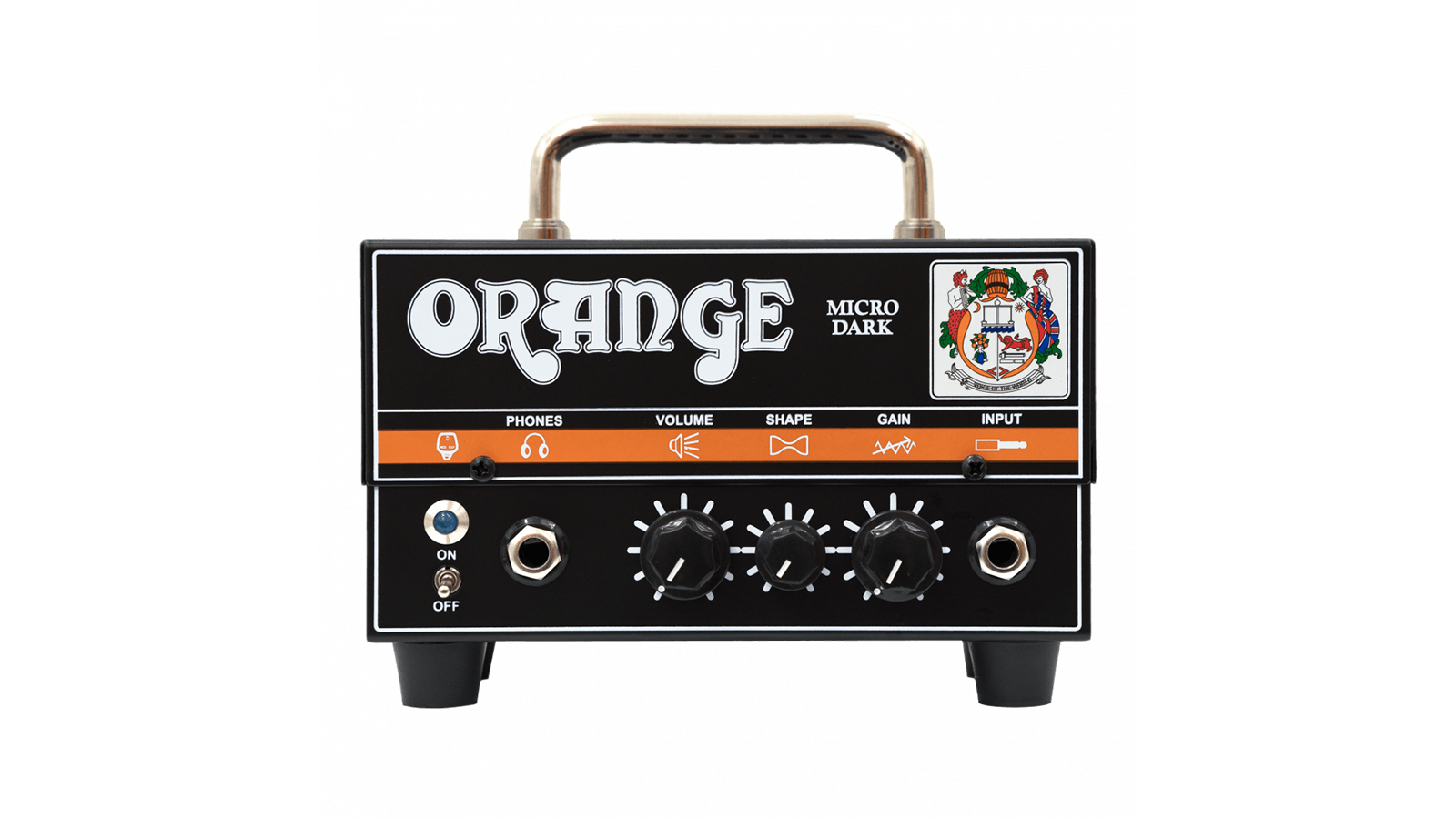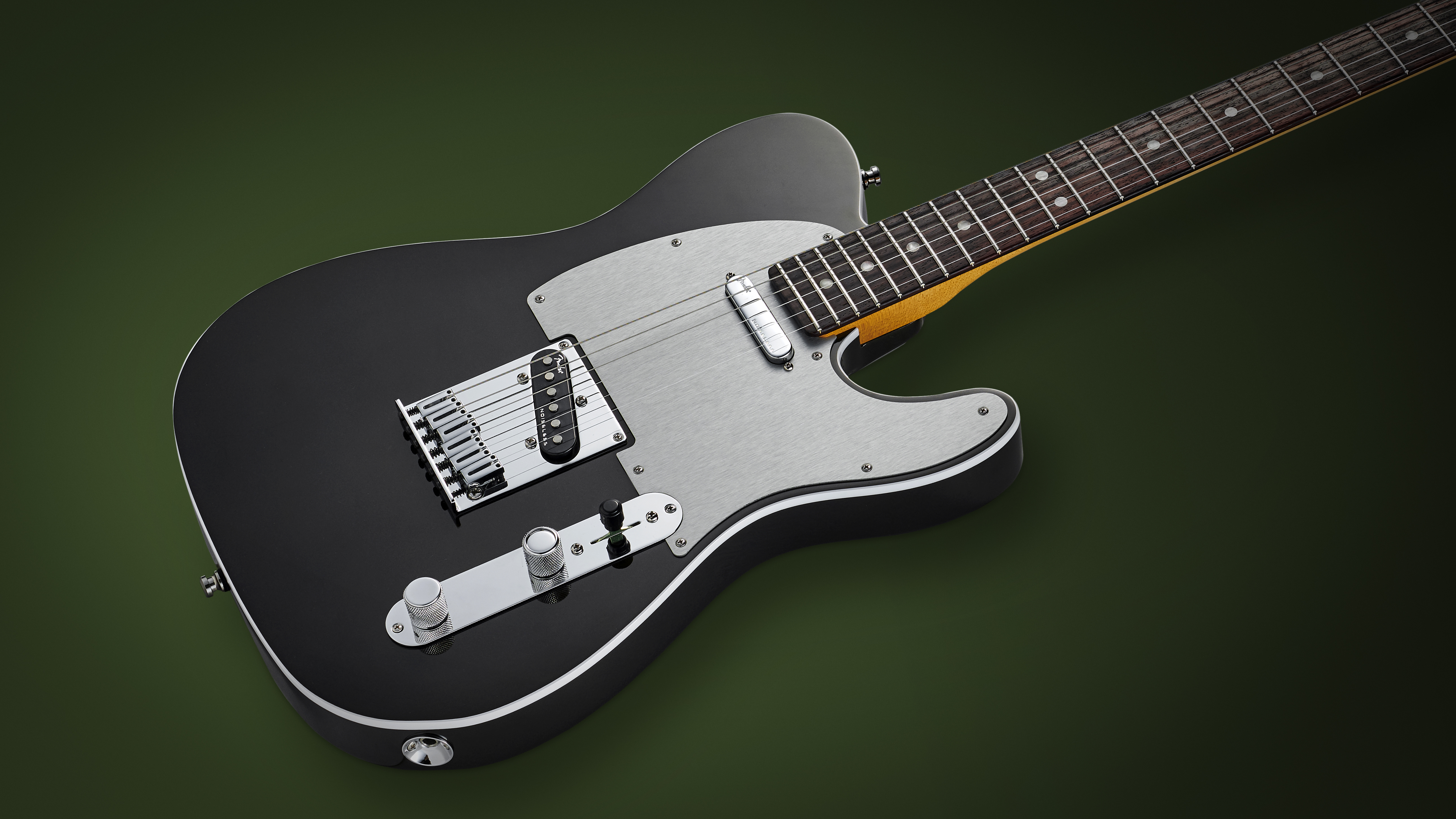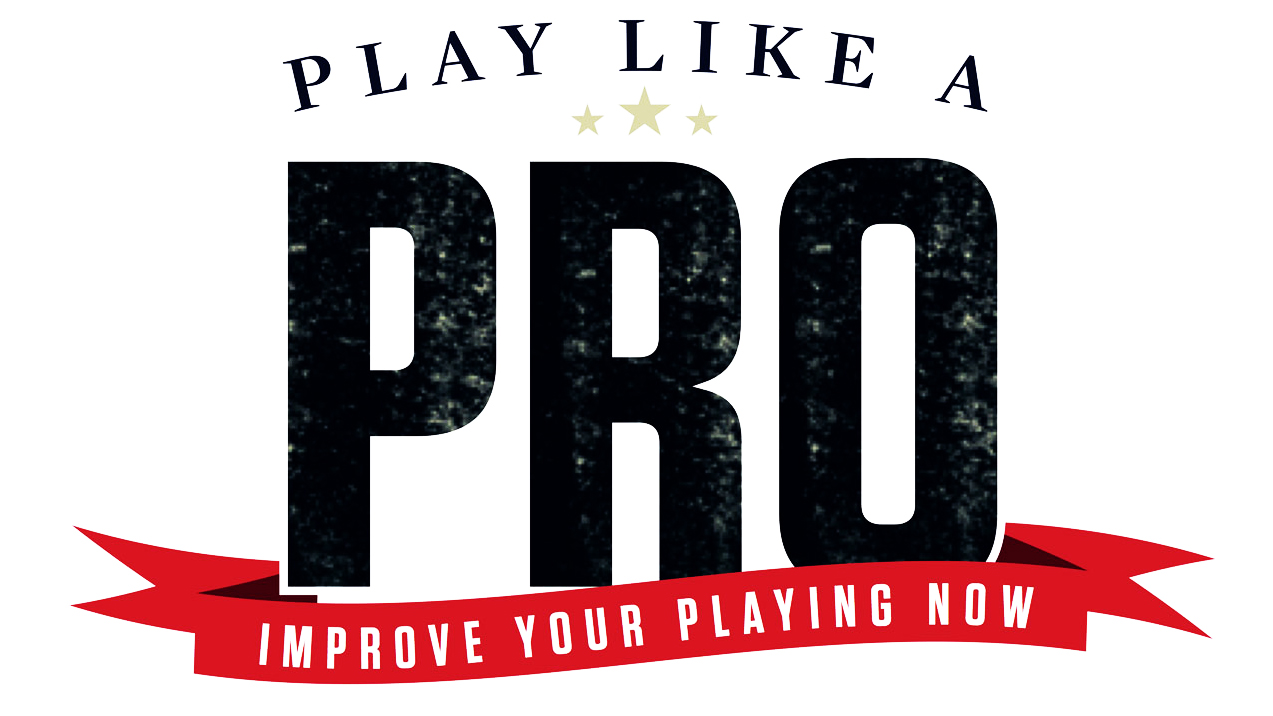
Want all the hottest music and gear news, reviews, deals, features and more, direct to your inbox? Sign up here.
You are now subscribed
Your newsletter sign-up was successful
Don’t get bitter, get better - or so the saying goes. We asked a panel of pros for their tips on everything from how to practise more effectively and what gear to rely on; to essential techniques and even how best to conduct yourself.
We spoke to everyone from legendary session players to top sidemen, celebrated solo artists and world-leading guitar tutors, and distilled their advice down into 46 tips that will help anyone play more confidently and consistently well.
You might not be playing Wembley next week, but follow the tips in this gallery and you can play more like a pro, wherever you go...
Be yourself
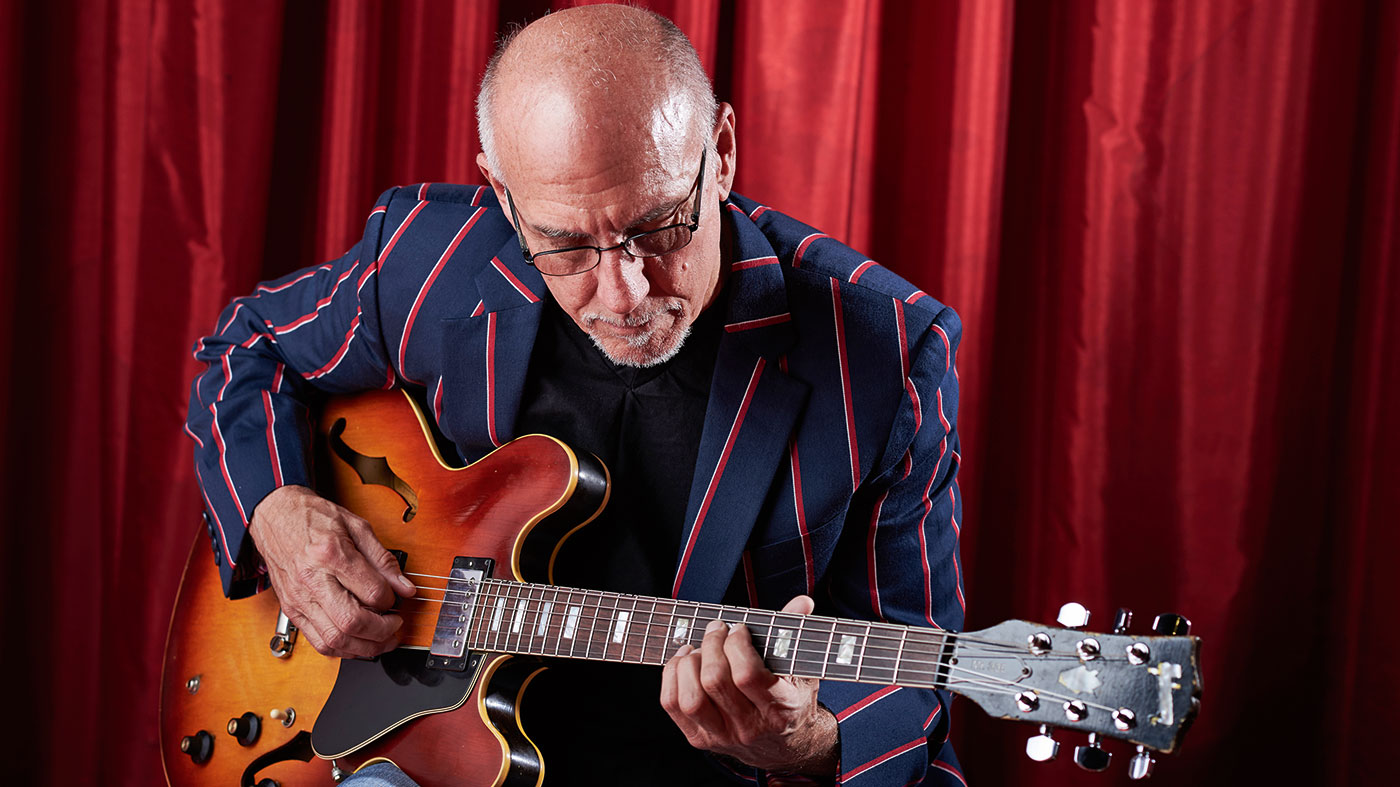
Larry Carlton: “Practise what you must practise - but then when you go to play, play what you love and feel. Because then you’ll be playing honestly.
"It’s an honest representation of you playing your music. I think that gives the listener a chance to really decide if they like it or not - don’t try to fool anybody.”
Knowledge is power
“There are great players that know none of this stuff, but I bet if you asked them, 95 per cent would say they wished they did"
Steve Lukather: “I can’t tell you how helpful knowing music theory and learning to read and write music has been. It is the language of what we do.
"You don’t have to be ‘Mr Sight-read’, but fuck anyone who tells you it ‘hurts your playing’. I have never heard such shit in my life. Knowledge is power.
Want all the hottest music and gear news, reviews, deals, features and more, direct to your inbox? Sign up here.
“There are great players that know none of this stuff, but I bet if you asked them, 95 per cent would say they wished they did, and that they had learned it when they were young. I played by ear for the first seven years of my career, and it was very hard to go back and learn music properly, but I think it was worth it - and I use it every day.
"There is so much competition - anything that gives you the edge to get the gig and keep it seems the right way to go to me.”
Practise, then play
“I find that 20 to 30 minutes of concentrated effort is the most productive practice length"
Mitch Dalton (Herbie Hancock): “I’ve reached the conclusion that it’s fine to work at almost anything as long as you understand the difference between ‘playing’ the guitar and ‘practising’ the guitar.
“The latter involves identifying a specific aspect of technique - such as scales, arpeggios and so on - that requires attention, and then concentrating on that for a while.
“By contrast, ‘playing’ the guitar is what you do when you’ve finished practising. If the two are confused it wastes valuable time, and doing so will also cause you to embed your deficiencies into your playing by continuous repetition: ‘practice makes perfect’, but practising mistakes makes them perfect, too!
“I find that 20 to 30 minutes of concentrated effort is the most productive practice length. Take a short break for a cuppa for 10 minutes and then return to it - ideally to another specific area that needs improvement.
"Adhering to this regime for a couple of hours a day should leave you tired but uplifted and spurred on by your progress. Play whatever you like after that!”
Callus behaviour
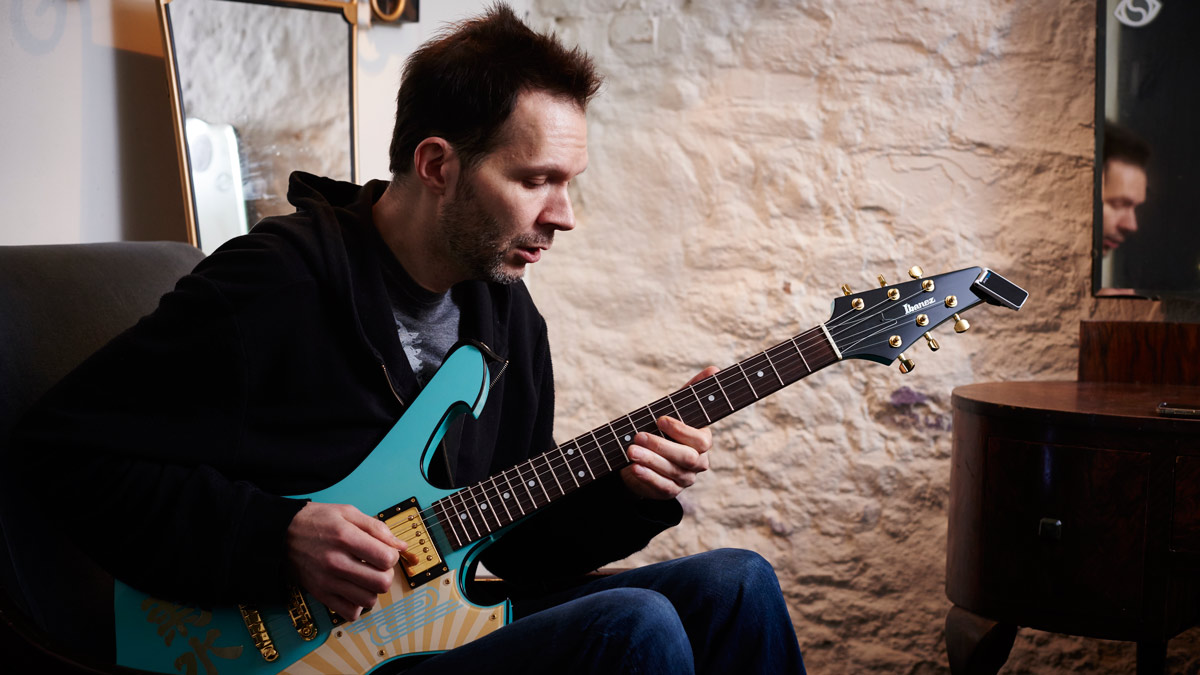
"Practising scales just seems like the most tedious and unmusical thing I could ever do, so I rarely do it."
Paul Gilbert: “The older I get, the more I really dislike practising - and the more I love playing guitar!
“Practising scales just seems like the most tedious and unmusical thing I could ever do, so I rarely do it. But I play music on my guitar all the time, so my technique stays at a pretty good level.
“If there is anything that I really want to maintain, it is my calluses. If I’m in the studio and have to do a lot of waiting around, I’ll sometimes just sit there and bend strings to keep my calluses in shape.”
Don't fear theory
Allen Hinds (Randy Crawford): “Knowing a little theory can go a long, long way: it definitely helped set me apart from guys who only had a good feel.
“If I had to choose between theory and technique and good feel, I would choose feel and soul every time - but when you sprinkle in a little knowledge of theory that doesn’t overshadow the feel and the soul, then you have something special.”
Start slow
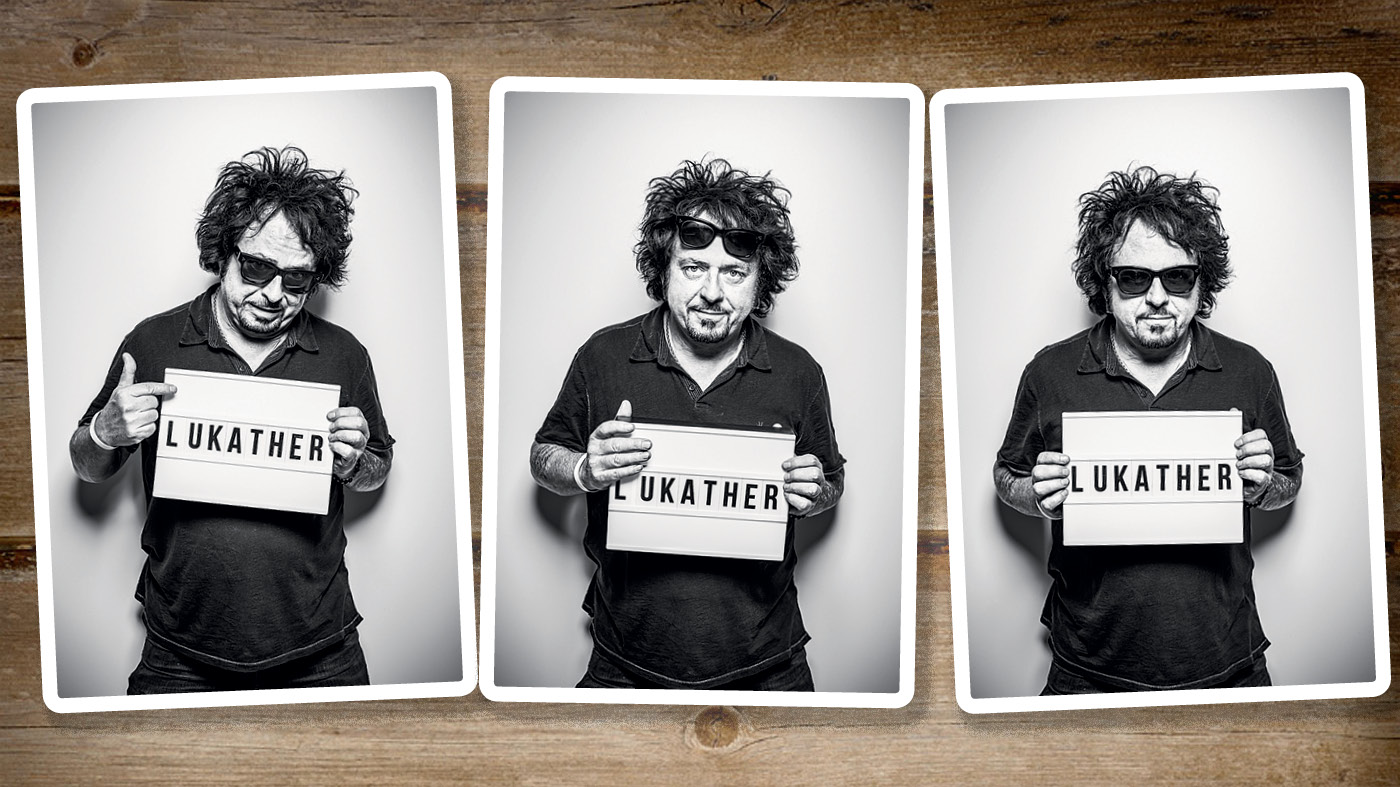
Steve Lukather: “Don’t practise what you already know - unless it is rehearsing a song for a gig.
“Work on what is difficult for you, but start doing it very slow and to a click or a drum machine. Your chops are worthless if they are not ‘in the pocket’ or they don’t feel good.”
Muscle in
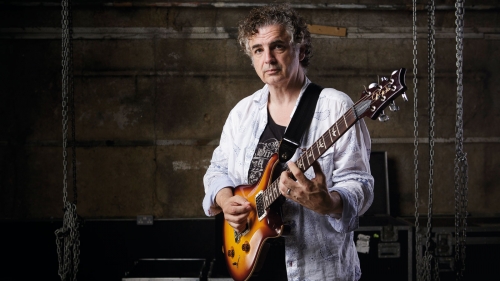
Jakko Jakszyk (King Crimson): “A lot of it [learning difficult material] is about developing muscle memory by repetition.
‘With things like Lark’s Tongues In Aspic, you need to get to the point where your muscles know that’s what’s needed to get from A to B.”
Quality, not quantity
Howard Alden (jazz virtuoso): “I studied under [ jazz and session legend] Howard Roberts, and he was an amazing teacher in Los Angeles.
“He was very much into learning useful things, and learning them slowly and efficiently so you could play them in a lot of situations. And so he focused on learning small amounts of material really well, rather than going through reams of material or trying to learn a bunch of different arpeggios or melodic figures and stuff, and ending up playing them all not-so-good.
“He taught that you should start with one really vital idea and learn how to use it efficiently everywhere on the guitar [before moving on].”
Organise your practice better
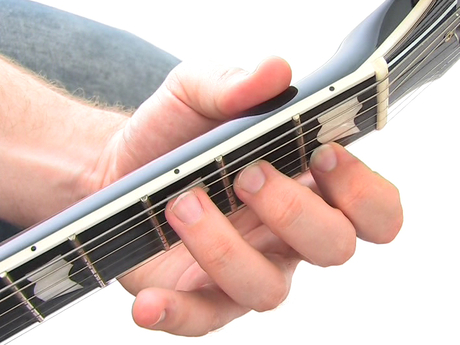
Jason Sidwell (Senior Music Editor - Guitarist, Total Guitar and Guitar Techiques): Practice time is a very personal topic, as each guitarist will have different requirements.
Whether it’s technique, repertoire, theory, improvisation or music reading, you should balance what you want to achieve with what you feel makes you a more capable player - whether that’s in a local band or at a professional level. Certainly, the broader your skills, the more gigs you could be considered for.
"Typical focus areas can include:
- Learning a wider variety of guitar styles
- Learning to improvise confidently over chord changes
- Developing a wide technique palette, from fingerpicking to two-hand tapping
- General fluency, dexterity and expressiveness
Focus more on overcoming your most pressing weaknesses and less on what you can already do. If you can already play the intro to Johnny B Goode, there’s little point in resting on your laurels, is there? Move on. Time is precious, so don’t waste it!
For each playing session, divide your time across the four areas below:
- Warm-up/technique maintenance (15 mins)
- Technique development (15 mins)
- Repertoire (15 mins)
- Improvisation (15 mins)
Time allocations should be driven by your requirements: if you’re trying to expand your technical horizons, you may want to spend more time on developing specific techniques and improvising (say, 40 minutes or an hour) and less on warm-ups and repertoire.
If you have a gig coming up, repertoire will probably take precedence over development.
Whatever your needs, this practice regime is a great way to plan your practice time rather than embark on an aimless ‘noodling’ session with no direction and weak results.
Singing helps you solo
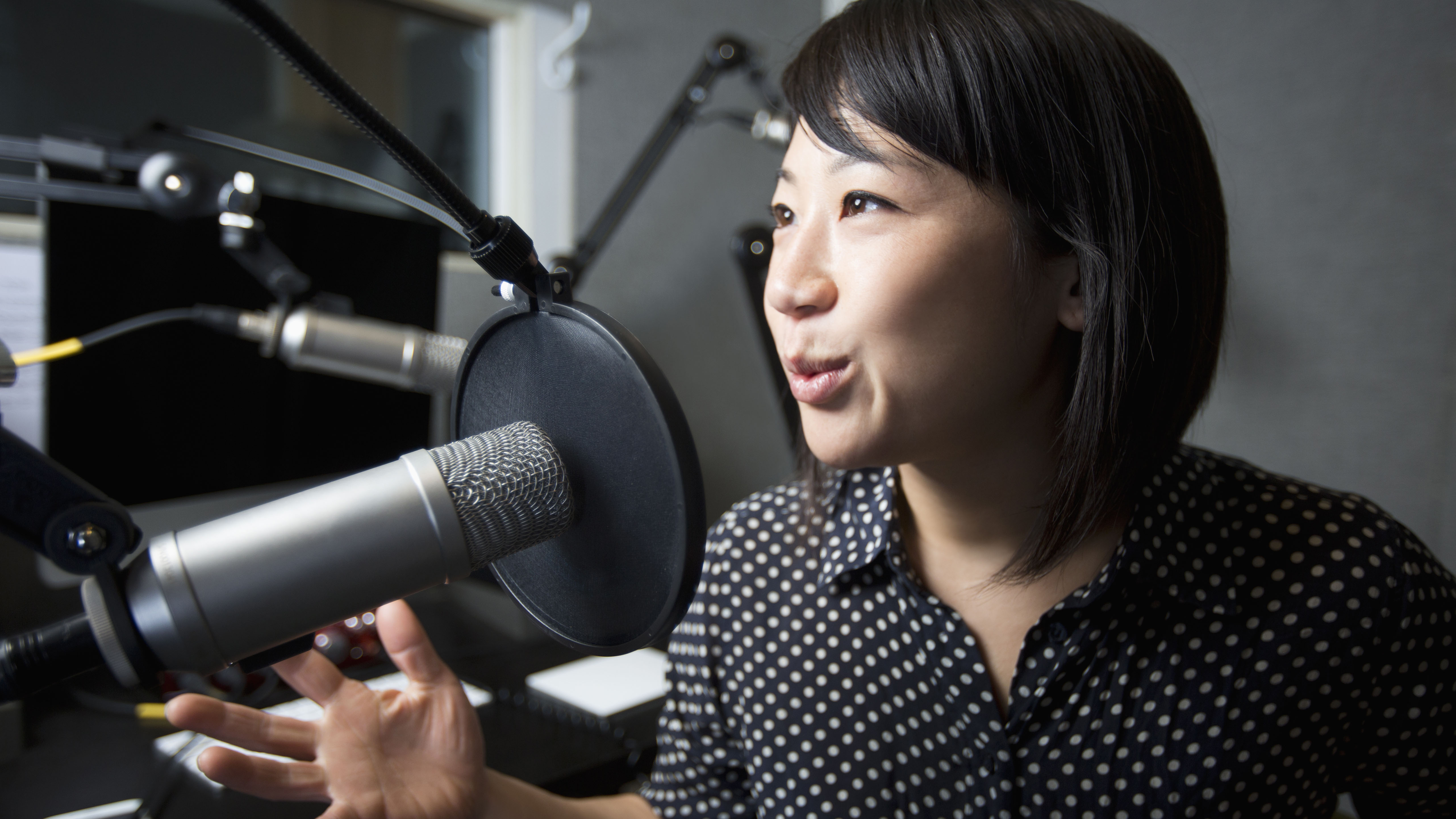
"I tell my students that they should consider their solos to be compositions"
Allen Hinds (Randy Crawford): “Try singing what you want to play some time. Not that I ever like that sound of guys scatting along with themselves - but it’s more about internalising what you are playing.
“When singing, you’re taking short breaths between notes, and that naturally makes you phrase better - and also create better melodies.
“I tell my students that they should consider their solos to be compositions: create a melody people can remember in the first 8 or 16 bars, and remember that the slow stuff you play is more important than the fast, flashy stuff.
“Oh, and it’s gotta be in time: that draws people in way more than playing fast, shreddy stuff!”
Be economical
Rob Harris (Jamiroquai): “I know it’s a cliché, but for me it has to be the ‘less is more’ approach.
"I began to realise that playing just the right note or two with the perfect sound in the perfect place is far more satisfying for me as a listener or player than throwing everything at it all the time.
“This also goes the same for sessions: I’ve been lucky to work with and watch some legendary musicians in the studio, and I’ve noticed that they never outstay their welcome musically, or keep offering their own ideas unless asked to do so.”
Don't rush
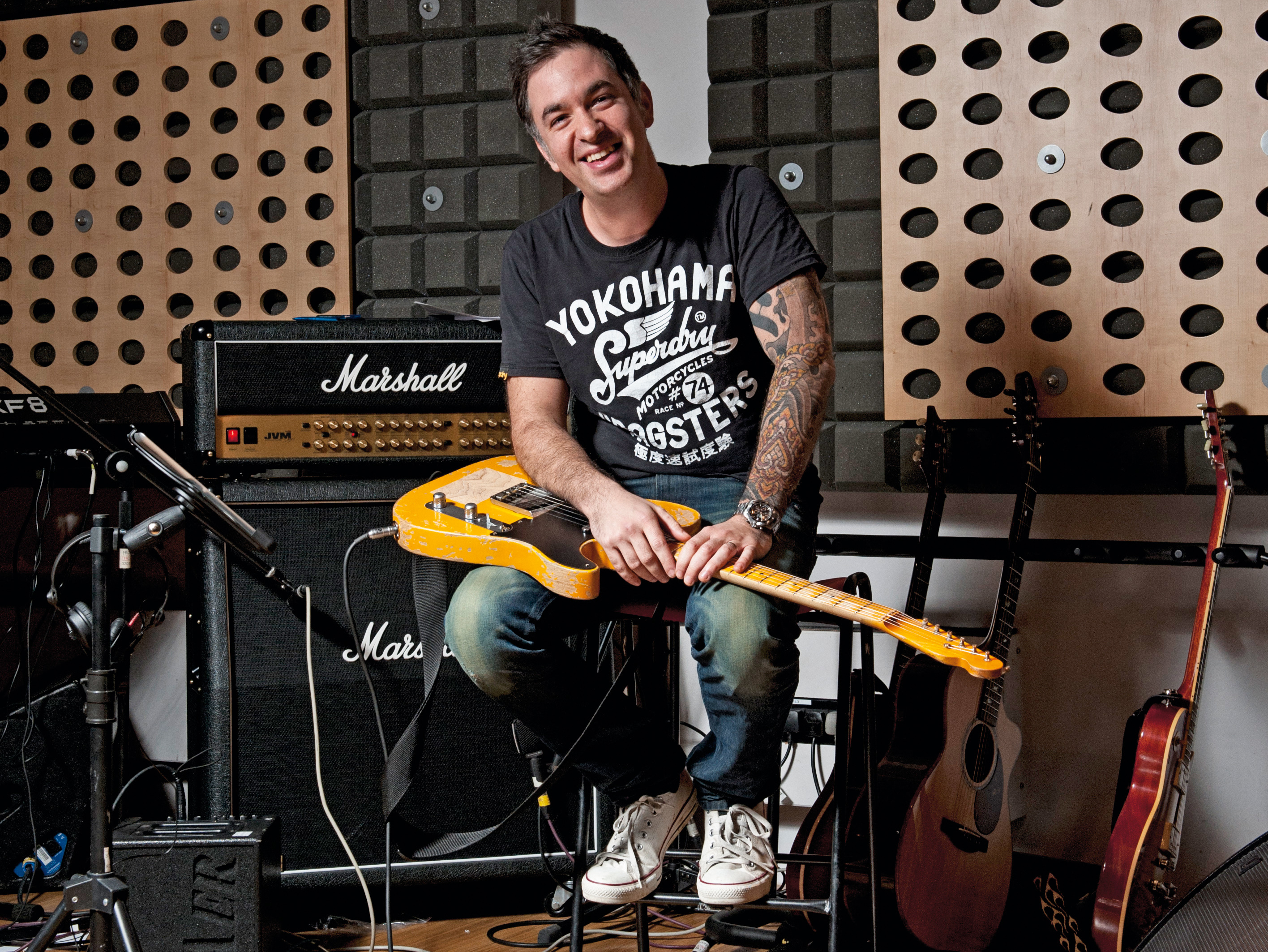
"Playing tasty and simple stuff in time gets you gigs, not shredding around ahead of the beat."
Adam Goldsmith (The Voice UK): “Loads of guitar players, for some reason, have a tendency to play slightly ahead of the beat. The rest of the band - especially bass and drums - will hate this.
“Record yourself to a metronome on Pro Tools, GarageBand, or whatever, and really try to listen to where on the beat you play. Playing tasty and simple stuff in time gets you gigs, not shredding around ahead of the beat.
All the great players -from every style - play with great feel and time, whether it’s Van Halen, Petrucci, Jeff Beck, Robben Ford, Hendrix or whoever, regardless of whether they can play at 1,000 miles an hour.
“Robbie McIntosh is a great example of this: great feel and time, other musicians love hearing and playing with him, not just other guitar players.”
Take control
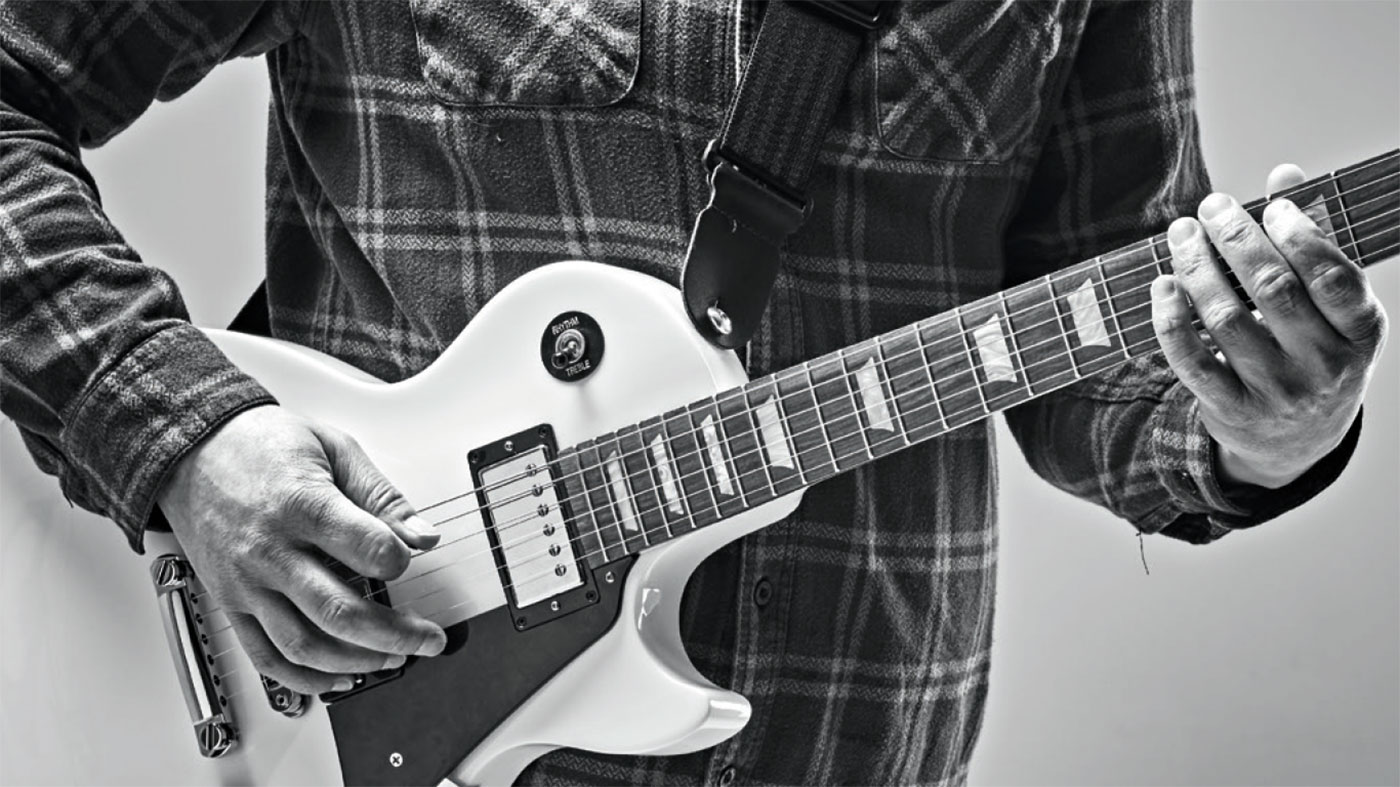
Rob Harris (Jamiroquai): “A good rhythm player will always get a gig.
"Make the song feel good. Also, learn to control your instrument; no one wants to hear ringing strings, unless otherwise directed, of course.”
Get rhythm
Carl Verheyen (Supertramp): “Professional guitarists make their living playing rhythm guitar. We really only get to play solos five per cent of the time, if that. Your feel is everything!
“You need the ability to adjust your groove from centre time when playing with a drum machine, to laid-back time when playing with an R&B drummer, to on-top-of-the-beat time when playing punk music or speed metal.
“Rhythm guitar can be broken down into many stylistic categories, and a large vocabulary of rhythm licks is essential. Buy a copy of Ray Charles’ three-CD boxset, called The Birth Of Soul, and play along with every track. The band is just piano, bass and drums, with three horns, so I try to fit in to their groove and be the guitarist in Ray’s band.”
Prepare yourself
Carl Verheyen: “At the age of 16, I played a friend’s big sister’s wedding ceremony for $75 - a huge amount for a kid. The song they picked was Love Story, from the popular 1970 movie. I bought the sheet music, read it down and filed it until the day of the gig. My mom said, ‘Shouldn’t you practise that song?’ to which I replied, ‘Nah... I’ll just read it.’
“At the church, the pastor directed me to the choir loft, where I set my music pages on the railing. At the designated time, the priest pointed up to me, and the video guy trained his camera my way. I began the tune, but right at the bridge a strange wind - not from heaven! - lifted my pages and sent them wafting down to the pews below.
"As pages floated down on their heads, the people must have heard the song going badly wrong, because I had to make up the words and music and find my way back to the last verse.
“I packed up my guitar and left in a hurry, never collecting the $75 or attending the reception. I decided right there that I would never again be unprepared, under-rehearsed or unprofessional. My motto: I will not suck! I can only imagine the many years of laughs I provided the wedding couple as they viewed their video.”
Stop for breath
Larry Carlton: “It’s easy when you’re playing guitar to just end up playing what I call ‘stuff ’. It’s not music, it’s just guitar ‘stuff’ [aka aimless noodling].
“I think that guitar players sometimes need to remember that eventually you want to be making music, not just guitar stuff, come out of the instrument. And one way of becoming aware of how to do that is to listen to sax players or singers.
“They have to stop and take a breath: a sax player can’t just ramble on forever like we can on guitar.”
Be dynamic
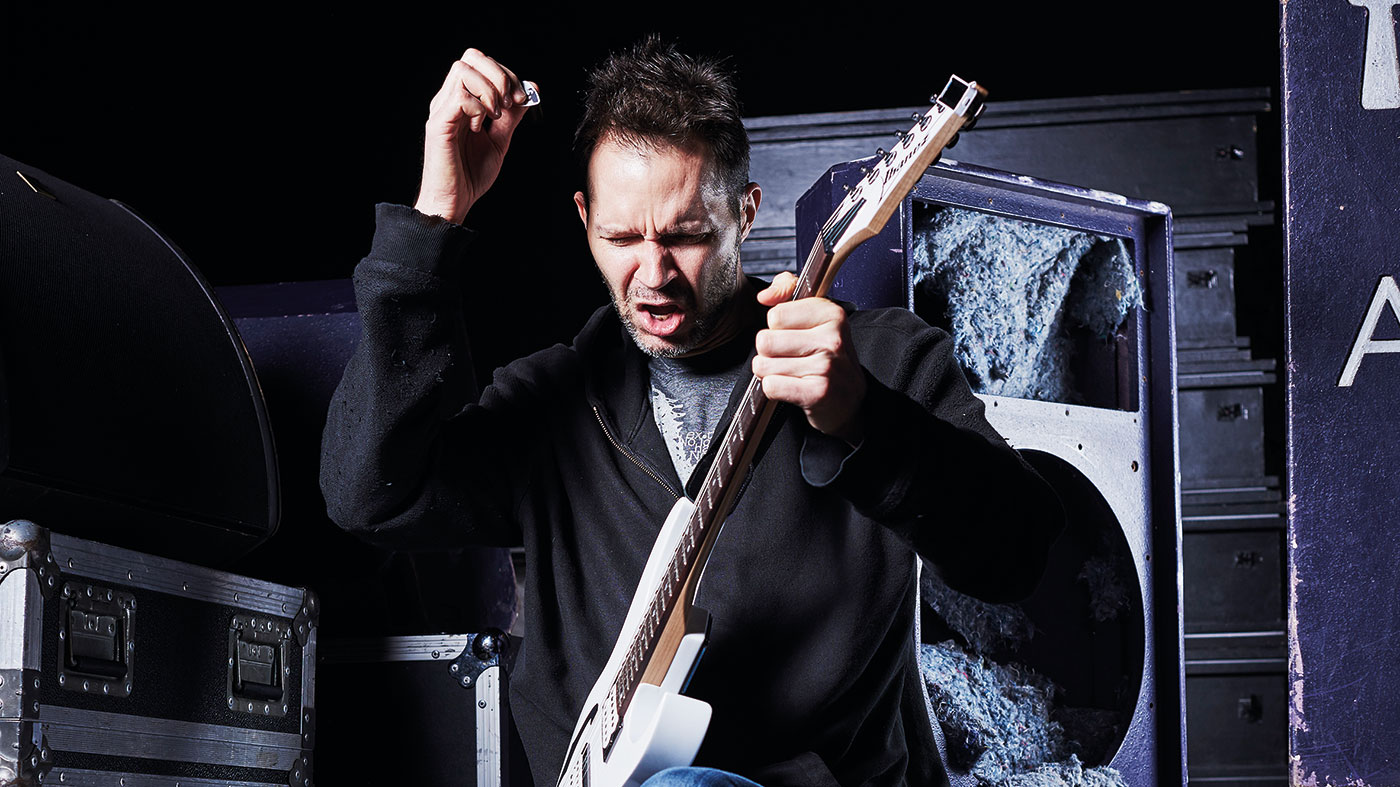
Paul Gilbert: “I am stunned at how many guitarists play every note at the same volume. Maybe robots are secretly taking over the world... Anyway, I’m converting them back to humans at my online school.
“I make everybody play quiet and loud, and even volumes in-between. And this happens from the way you play, not from gear manipulation. Dynamics, dynamics, dynamics.”
Drop the bravado
"Music is a beautiful thing as well as a powerful thing"
Bill Nelson: “Developing taste and quality of touch is important. These things come with time for most of us.
“It’s tempting, when we’re young, to play everything as if we were taking part in a cutting contest. But music is far more subtle, complex and interesting than that. Sometimes it demands a show of dexterity, other times it requires sensitivity, restraint, delicacy.
“Knowing how to balance phrases, when to understate an idea rather than hammer it home, requires thoughtfulness, emotional maturity and a willingness to break free from rock music’s macho male competitiveness.
“Music is a beautiful thing as well as a powerful thing. Try to bring your heart and imagination into the equation, not just your testosterone!”
Play unselfishly
Steve Lukather: “Vibe is essential. Do not play for yourself! Play with the band and make it swing and feel good.
"There’s plenty of time to show what you have when the time is right. Listen before you play, and keep it simple, strong and confident.”
Be articulate
John McLaughlin: “Improvising has no real hard or fast rules. However, you have to master the instrument as much as possible, otherwise you’ll give your inspiration problems.
“If you are not able to articulate your ideas, then you have a problem. And your audience does not want to hear about your problem!”
Learn to focus
Adam Goldsmith: “Being able to block out everything except the music and essential info is a good skill.
“Using The Voice as an example, on the live shows, if there is a guitar solo intro - which there often is - there is a moment, which seems to last forever, when the one- or two-bar click into your playing comes through your in-ear monitors, and you are distinctly aware that seven million people are watching you.
“This is clearly quite a lot of pressure: so you have to block out the lights, cameras, presenters, audience, any other distractions, and focus on the click and on playing well. Even strumming an open E chord can become hard under those conditions.”
More taste, less speed
Elliott Randall (Steely Dan): “With all respect to those wonderful gymnastic guitarists who can play a million notes a second - and I do have respect for what they do - to me it’s all about leaving the listener feeling as though their heart has been touched, so they’re able to walk away with the memory of a melody, rather than ‘Woah! Wasn’t he fast?’”
Be consistent
Frank Marino: “I learned a long time ago, and the hard way, that one of the biggest mistakes you can make is to treat any one gig more special than another.
Sometimes, people will say, ‘Okay, it’s New York!’, or ‘It’s LA!’, or more usually, ‘It’s our home town!’ and then they commence trying to do all kinds of special things that they don’t necessarily do at other gigs. Well, I learned that this is a recipe for disaster almost every time.
“If ever things will go wrong, it’s when you make this mistake. And you’ll usually end up playing like crap when this happens, and wish you could get a do-over, but you can’t.”
Think on your feet
Bluey (Incognito, Stevie Wonder): “On my first studio date as a session player, I was put in a half-open booth with the rhythm section, and after a couple of practice runs we were going for a take.
“At the end of the first verse, one of my strings broke and immediately put the others out of tune due to the tension being out. Rather than stop, as the pre-chorus came I twanged the low E string and tuned it up to the music as it hit that section, and looked around to see everybody smiling as if to say, ‘Wow, that’s a cool effect’, and proceeded to play a catchy riff on that one string for the rest of the song.
“They kept it, and the producer asked me to overdub that effect on the second pre-chorus. I learned from that to be ready to improvise and not get fazed by the unexpected.”
Develop an ear for detail
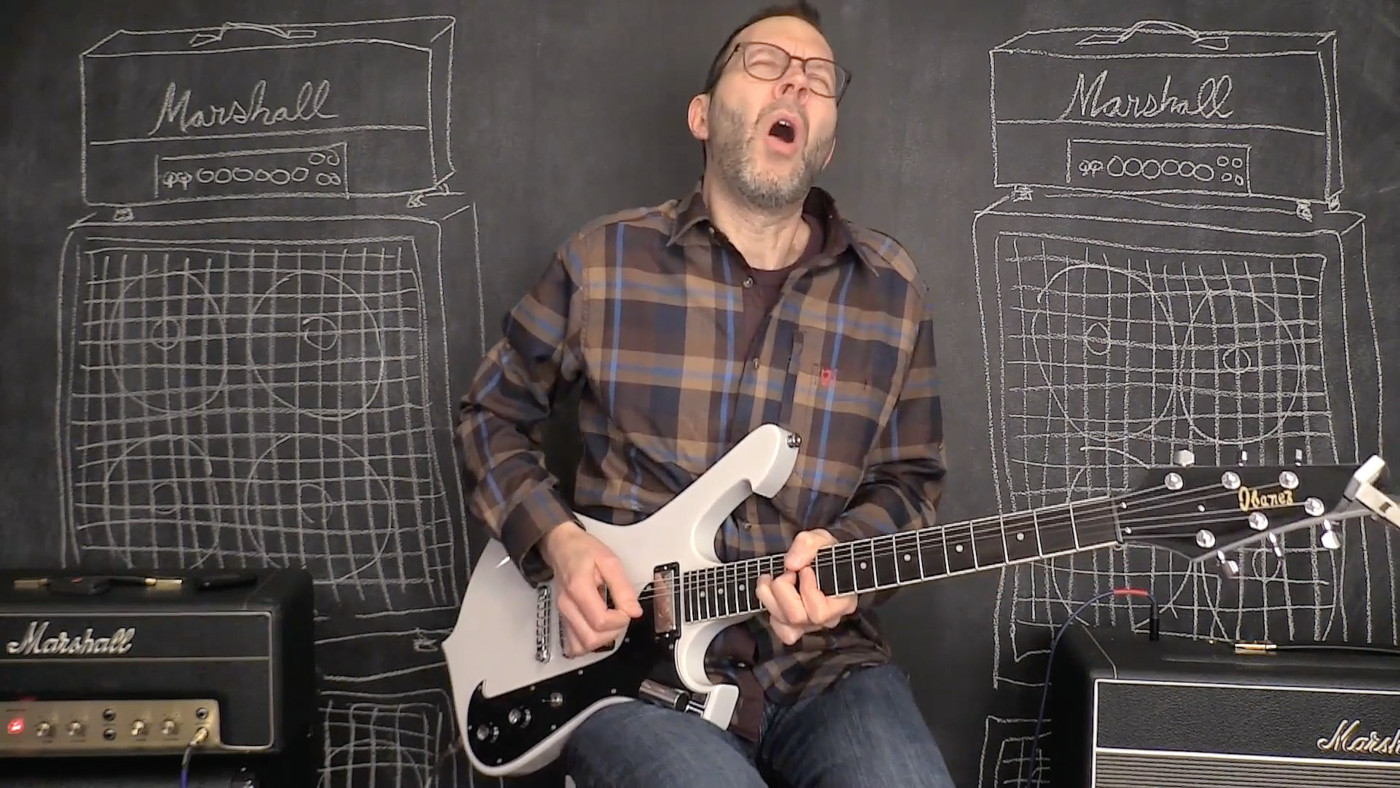
Paul Gilbert: “On one of the early Mr Big records, the producer made me play a G chord for about four hours, until it sounded the way he wanted.
“At the time, I just thought he was picky, but decades later... my ear is finally hearing some of the subtleties that he was looking for. Never underestimate a perfectly tuned and well-played G chord!”
Confidence is a preference
Allen Hinds: “When I was a music student, I sat in with Robben Ford one week out of every month.
“I skipped all my classes and got over the jitters and saw first-hand that he was human after all, and learned that all successful players have one thing in common: confidence.
“If I had to choose between more technique and confidence, I would take the latter every time.”
Dive in
Pete Callard (Lionel Richie): “Warming up properly helps a lot if I’ve got something stressful to do, and being prepared - it’s a bit of a cliché, but there’s a lot of truth in the old adage ‘failing to prepare is preparing to fail’.
“Smiling before I have to play something difficult or exposed is also a good stress-release thing, and just accepting the nerves and fear and doing it anyway.
“I like the analogy of jumping off a high diving board: you can’t jump off it a bit, you either have to embrace the experience and go for it or not do it at all.”
Stay on the ball
"Get too flashy and you can trip up on your own ego"
Bluey: “Some musicians get too comfortable with a gig and maybe stop looking after their equipment, or turn up with the wrong gear.
“As a session player, you must always be prepared to give the client what they need. As a band member, you must be able to take care of your own side of things on guitar, so as not to be a burden to others.
“But mainly it’s an attitude thing, and it’s all about balance: being charismatic is good, but get too flashy and you can trip up on your own ego. I have parted company with some of the technically finest musicians on the planet because their attitude stinks!”
Social skills pay the bills
Allen Hinds: “Well, there are thousands of guys who can play; thousands can replace you at any given moment, so attitude is a lot - unless you are just a genius who is light-years ahead of any other guitarist, and maybe then you can get away with more stuff.
“But for most of us mortals, it definitely takes social skills and a little brains, caring and thought. And I would say that most guys I have seen ‘fall from grace’ did so because they thought they were so good they were untouchable.”
Growing pains
Paul Gilbert: “I’ve only been fired from one band in my life... and that was because I tried to steal the drummer to form my own band, didn’t have a car to get to rehearsal, and was sarcastic and insulting to the leader of the band. I was 17 years old.
“These days, I’m a supporter of acting normal and doing the job. Rolling Stone magazine will be eternally uninterested in me for this, but that approach means I get to enjoy a life with relatively low drama, and spend more time playing music.”
Don't put yourself down
Frank Marino: “There was a time when I was quite young that I would always answer those who complimented me by thinking I needed to play it down. I didn’t want to seem like a jerk who liked his own stuff.
“Well, I played it down so much that I began to believe I really couldn’t play very well at all. I began to believe I was not as good as they were telling me, that I was even very bad. Then I found that I really couldn’t play anymore without feeling awful about everything I was doing.
“To get out of that vicious cycle, I had to practise the opposite mentality for months, even verbally, even though I didn’t believe it. I had to talk myself into believing in myself again, because I had talked myself out of it, in trying to be too modest. But once I had bent the bar back to normal, I learned to just say ‘thank you’, and move on.”
Expect the unexpected
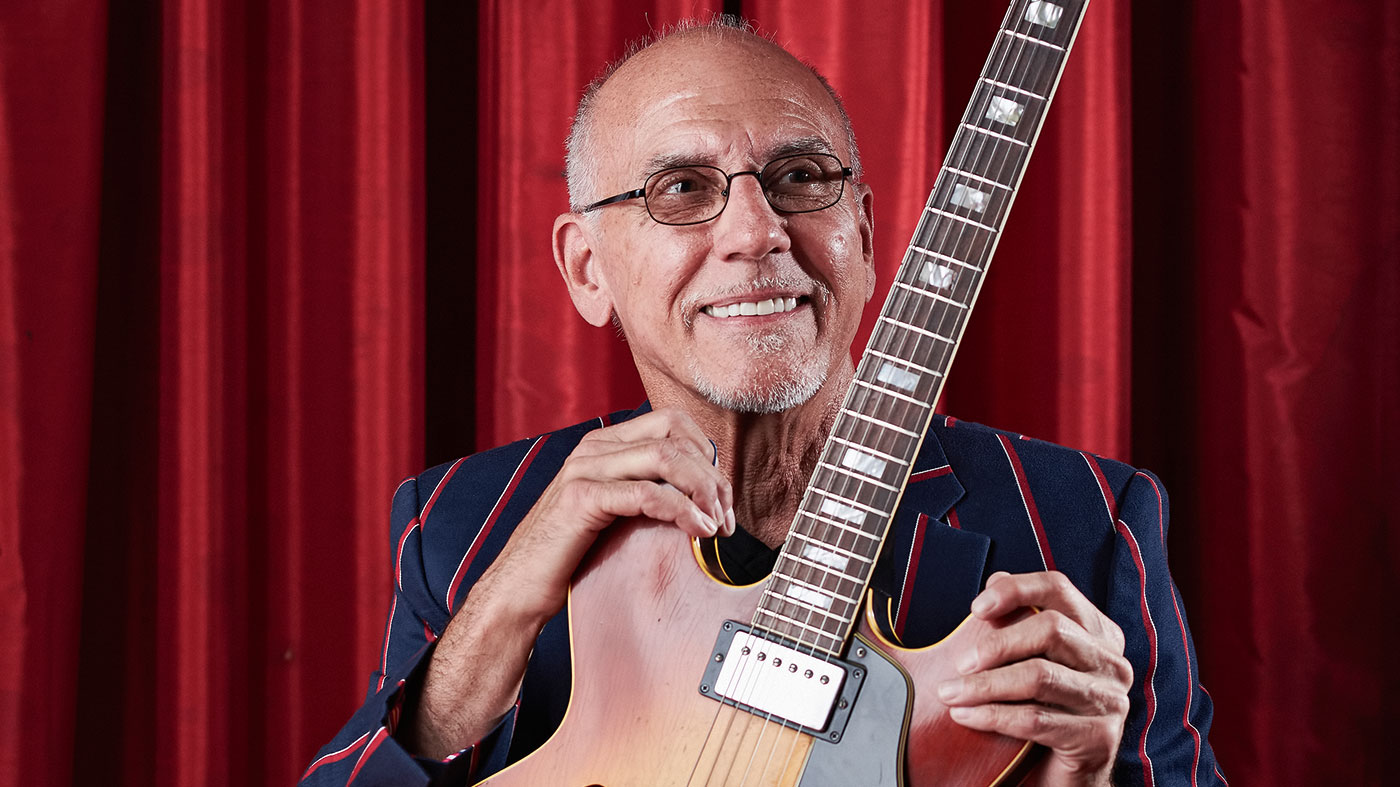
Larry Carlton: “One of my first sessions, in 1969, was for Quincy Jones. And I was the new guy - I had never worked with Quincy. And I got to the motion picture lot, and it was probably three horns, Ray Brown on bass... in a dark room with a big screen, Quincy conducting.
“There was a stack of music, and I played the guitar part for the cue that we were doing. And then Quincy said - and this was my first time to ever experience this, and I went ‘Oh s**t!’ - ‘Alright, flute players give your parts to the guitar,’ and vice versa. And he started redistributing the parts.
“And now, all of a sudden, I’m going to read the flute part, which was probably all ledger lines, way up [outside of the typical range of guitar notation]. And I was scared to death to tell you the truth.
“I made it through the session, but that opened my eyes to the potential of any session being something you didn’t expect.
“I always thought that maybe I didn’t do such a good job on that session, so many years later I asked Quincy. And he said, ‘Larry, all I remember is you came in and did a good job.’ So it was all me - I psyched myself out!”
Keep things in proportion
"The lesson I learned from that was, don’t give yourself a hard time"
Jakko Jakszyk (King Crimson): “When I joined Level 42 I went, almost overnight, from being a struggling musician to being in a major act. It was a little before the only London show that they played that year, headlining at Crystal Palace Bowl. And I drove down to the soundcheck, which was the day before, and I saw these enormous posters with my face on them, and I’m thinking ‘Oh my God...’, and suddenly the realisation hit. I get onstage the next night and I’m petrified [laughs].
“Second number in, I play what, in my head at least, is the most unbelievable, glaring mistake. In my head, it’s the loudest thing in the PA and there’s a large neon arrow above me going ‘Wa-hey!’ And I came off at the end of the gig, thinking ‘f**k’.
“I spent the next day phoning the BBC, because they were going to broadcast the gig on Christmas Day, asking them if I could come down and repair one note on the audio. Eventually, this guy says, ‘I don’t know what you’re talking about, mate - I’ll send you a cassette of a rough mix.’ And when he did, I couldn’t even hear the note that I was referring to!
“The lesson I learned from that was, don’t give yourself a hard time - forgive yourself, because you know what? You’re onstage for a couple of hours, and no one probably noticed that note - only you.”
You can be too careful
Paul Gilbert: “Ways to beat pre-gig nerves? Breathing helps. Knowing the songs helps. And choosing songs that can be played without having to be careful helps.
“That’s one reason that I like blues and rock - music that often sounds best when the performances are a little bit loose and not too careful. Being careful is no fun. I want to enjoy music. I want to rock.”
Accentuate the positives
"Vibe is half the gig!”
Steve Lukather: “Every gig I have ever done, I learn from. Even a s**tty gig, you can learn from - you get what you put into it.
“I used to do sessions, and sometimes the songs were awful, at least in my opinion. But the person hiring you thinks they are great, so I always give 110 per cent, even at the worst of times.
"You can always find a positive in anything: I would dig deep and try and find a cool part that helped make the song better and please the artists and producers. A positive attitude and being a guy that has a great sense of humour really helps. Vibe is half the gig!”
Work on it
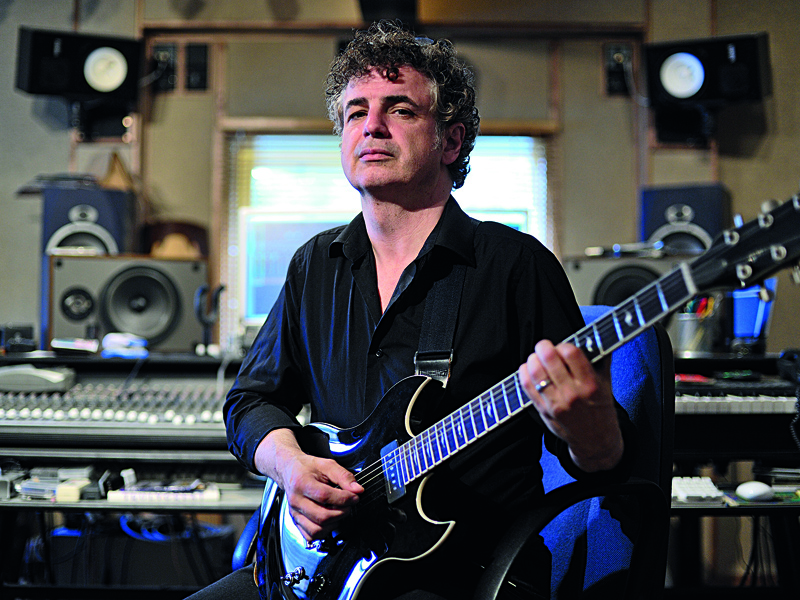
Jakko Jakszyk: “You need to put the work in. There are a lot of people in music who haven’t really put the work in, so there’s a lot of bluffing going on.
“A lot of what I do, the parts are specific, so you have to play them exactly right - you can’t say, ‘Oh, I’ll just play some bollocks through a delay [laughs]. There are a lot of people who hide behind equipment, I think."
Learn from life
“As we mature the focus shifts, deepens, and our playing becomes more sophisticated, subtle and, hopefully, sublime"
Bill Nelson: “We all have to face a certain amount of physical deterioration as we get older and I have to accept that I’m perhaps not as flashy a player at 66 as I was at 26, but I do believe I’m a much better player now than I was back then.
“As we mature the focus shifts, deepens, and our playing becomes more sophisticated, subtle and, hopefully, sublime. As we gain experience of life itself, our music develops to reflect that experience.
“Sometimes, just sitting down to read a good book, or to enjoy a piece of poetry or to admire a beautiful landscape, can bring more to our playing than endless hours of running up and down scales.”
Make mistakes
“I have seen all of my heroes f **k up. I love them for it - makes them human."
Steve Lukather: “I make mistakes all the time live, in the heat of the moment: I play too much, or miss a lick, or rush, or play a wrong note. It happens to everyone! If you don’t make mistakes, you are Xeroxing your shit in, and it loses its soul.
“I have seen all of my heroes f **k up. I love them for it - makes them human. Recording is like painting: you can step back, try a few versions until everyone loves it. But playing live is like Formula 1: it’s balls to the wall, and if you hit the wall you keep driving!
“So have fun and keep loving playing the guitar. It is a great source of comfort and a great way to get out your aggression and produce positive results.”
Expert advice
"There is only one you, with your touch, tone and musical concept. You are the expert!"
Carl Verheyen: “Whether it’s onstage or in the studio, my method of coping with stress is an easy mental process: I simply remind myself that I’m the expert here.
“In the studio, I believe that if I can’t play this part nobody can! And, onstage, I draw on confidence built from many hours of working to perfect music and my style. There is only one you, with your touch, tone and musical concept. You are the expert!
“You make music sound different, which is all that you’re here to do. Using these simple reminders, I can plunge myself back into the music and continue my quest for world domination! [laughs]”
Learn from your heroes…
Allen Hinds (Randy Crawford): “In my opinion, there is nothing wrong with choosing a piece of gear because your favourite guitar player uses it.
“I used to think it was crazy so many guitar players bought this or that pedal because some famous guitarist used it. But, really, considering that Mike Landau, say, or Robben Ford, has literally every piece of gear at their disposal, plus the luxury of trying out countless guitars and effects... why not? It’s a good place to start when you hear something you like.”
Get personal
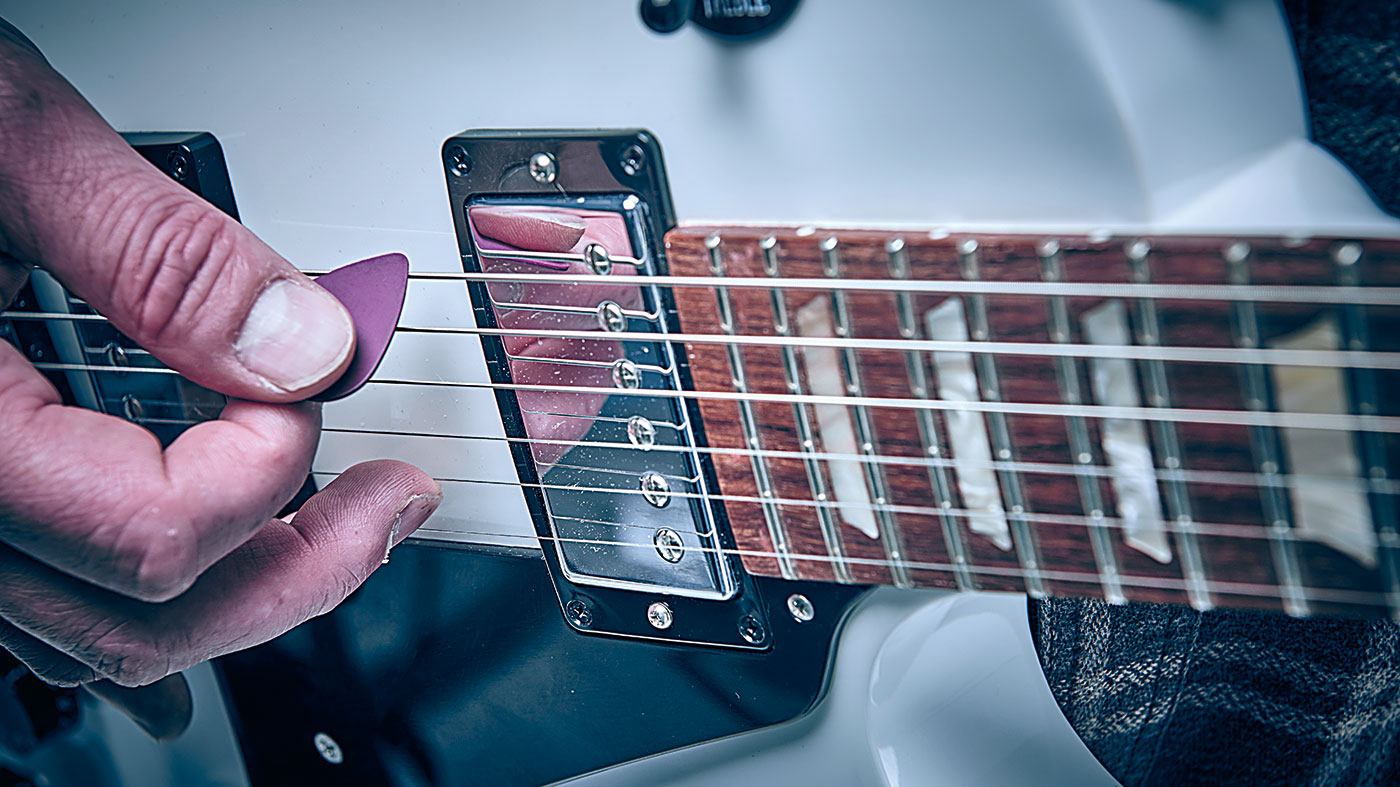
Jakko Jakszyk: “I think it’s about what works for you. There’s a thing that goes on between your fingers, the gear that you’re using and the sound.
“Sometimes, an otherwise good piece of gear just doesn’t give it to you in the way that something else will. And that’s really specific to you and how you touch the strings.”
Pay attention to detail
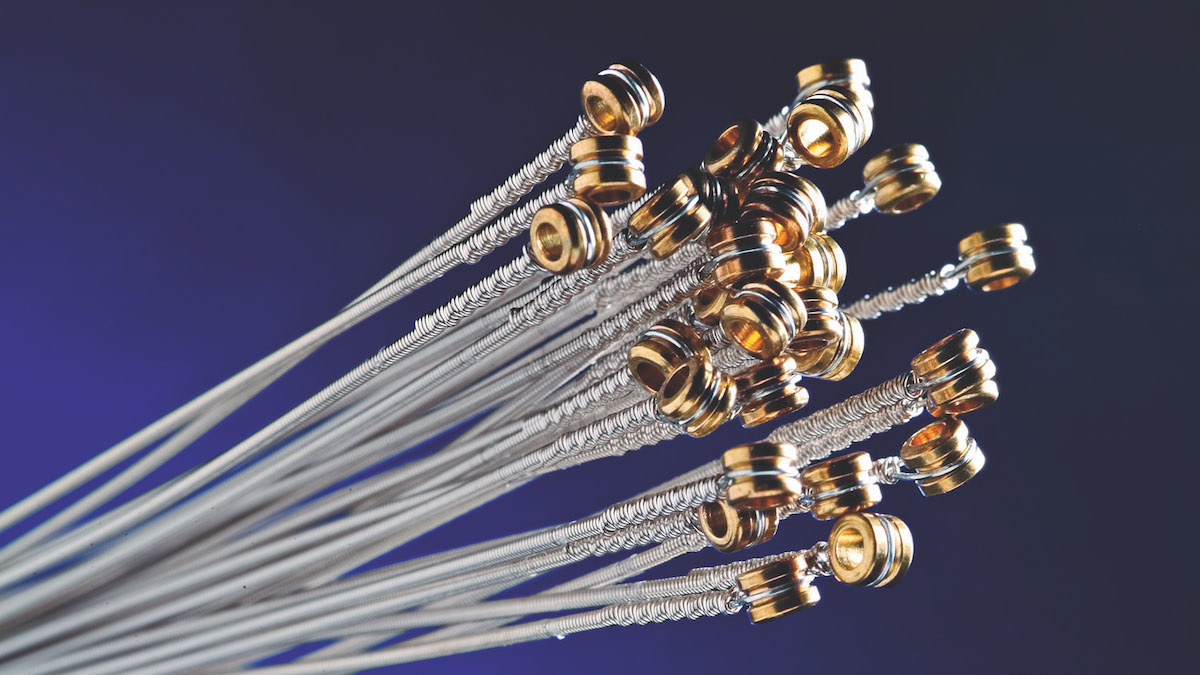
Carl Verheyen: “I have an old-school Conn strobe tuner that I use to intonate my instruments after almost every string change. After stretching out my strings, I make sure the harmonic at the 12th fret is the exact pitch of the same fretted note at the 12th.
“And before each tour I have my ‘tube-amp guru’ come to my warehouse and go through all the amps in the rig. He biases them and provides me with extra preamp and power amp tubes for the road.
“For a performance to come off as truly entertaining, a guitarist needs absolute confidence in the gear, from pick to speakers!”
Keep tags on it
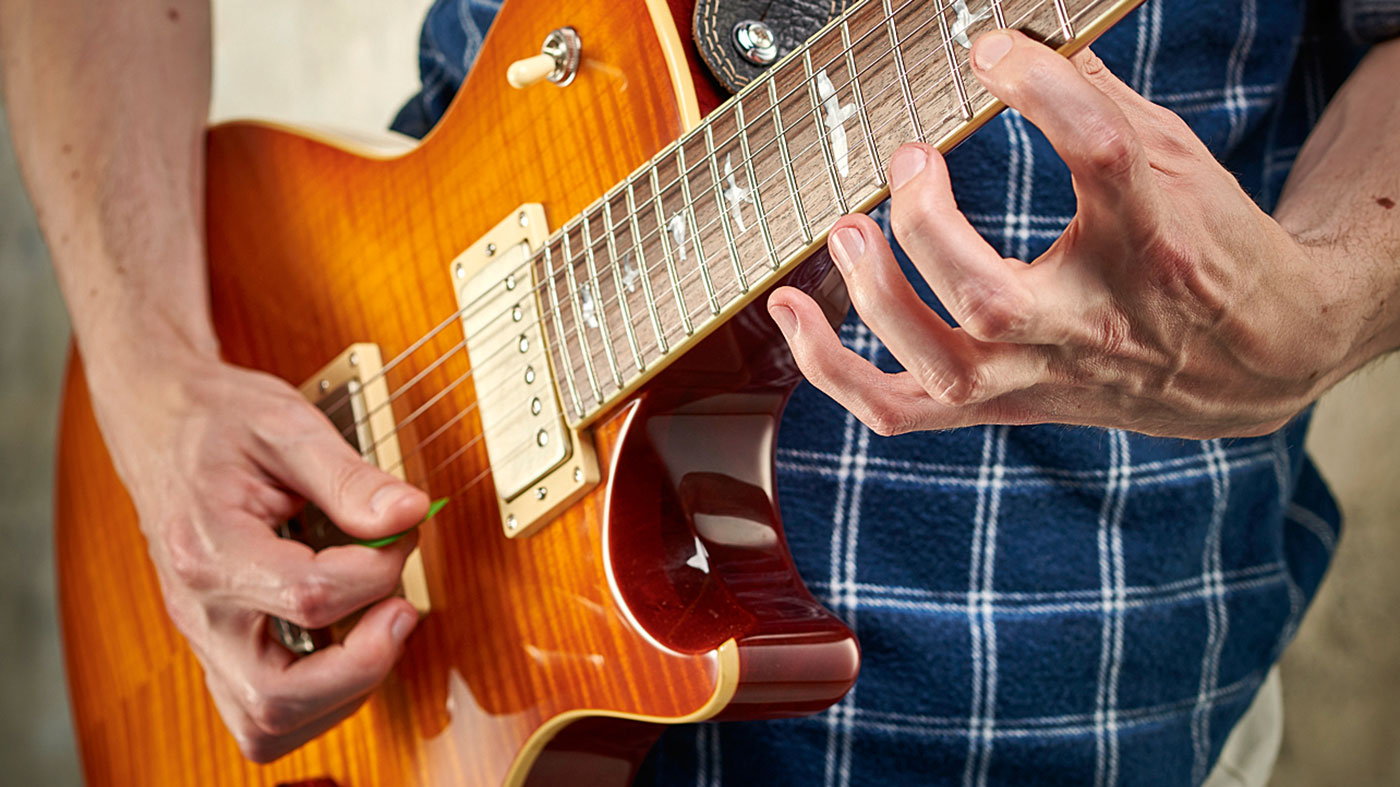
Pete Callard: “At a lot of gigs and festivals these days, you have to wear wrist tags. I always make sure mine is on my fretting-hand wrist - not too tight - as on the other wrist it can get in the way of your picking hand and get caught on the bridge.”
Keep a spare amp handy
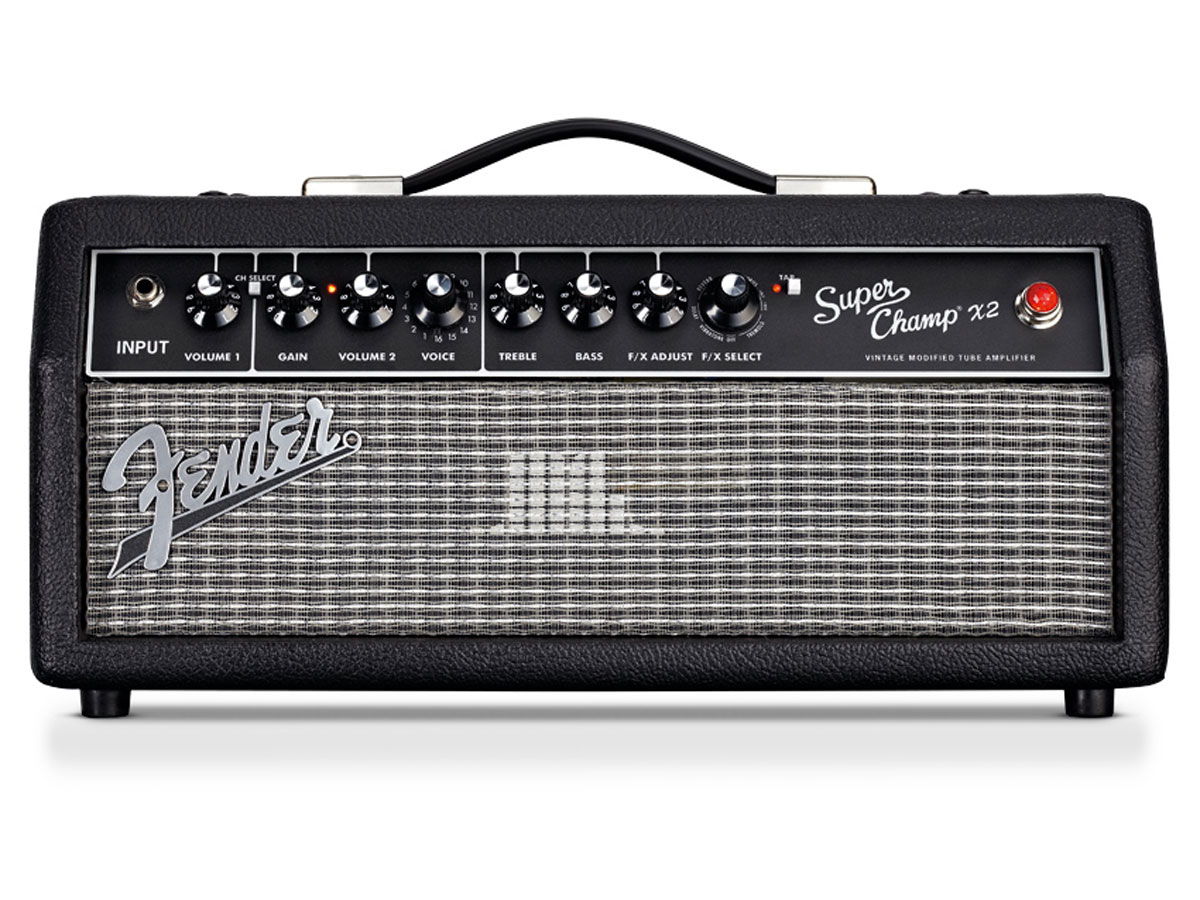
Mitch Dalton (Herbie Hancock): “Fender’s Super Champ amp is vintage, versatile and valve-y. Even more importantly, it resides reliably in the boot of my car during all musical engagements. So that when the bits of my lovingly rebuilt, hand-wired 1963 Reissue Fender Deluxe Reverb go ‘phut-phut-bang!’, a remedy is to hand.
“I find that this tends to reduce my professional anxiety levels from an unhealthily Tap-esque 11 to a near-industry average level of about 9.5. You know it makes sense.”
Find stuff that works
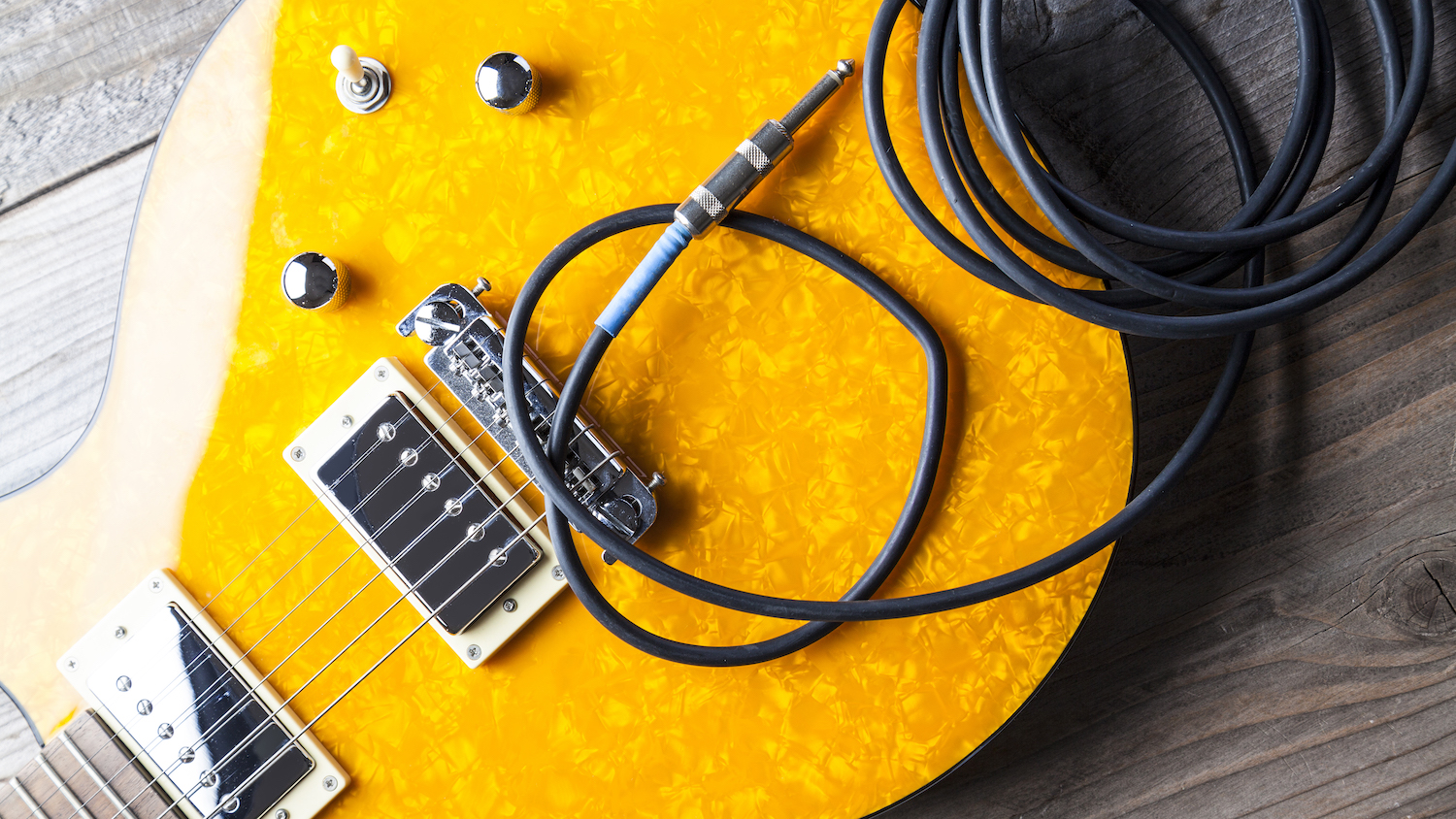
Adam Goldsmith: “Reliability is key. Quality is important, but whether a pedal is true- bypass or hand-painted by Bob Bradshaw on his day off, if your patch lead fails, your intonation is off or a screw rattles slightly on your boutique amp so the mic picks it up, that’s what people notice - and that can waste time, and money.
"A bypass strip, such as TheGigRig Quartermaster is good, as it can isolate potential problems and keeps your tone as pure as possible.
“The majority of recording sessions I do on electric guitar, I end up using a combination of my Two-Rock Studio Pro amp and an Xotic BB preamp, as engineers and producers often want the flexibility of adding delay, reverb and so on in the mix, rather than committing ‘to tape’.
“Also, buy a nylon- string guitar that has good intonation. This is harder than you might think.”
Be cool
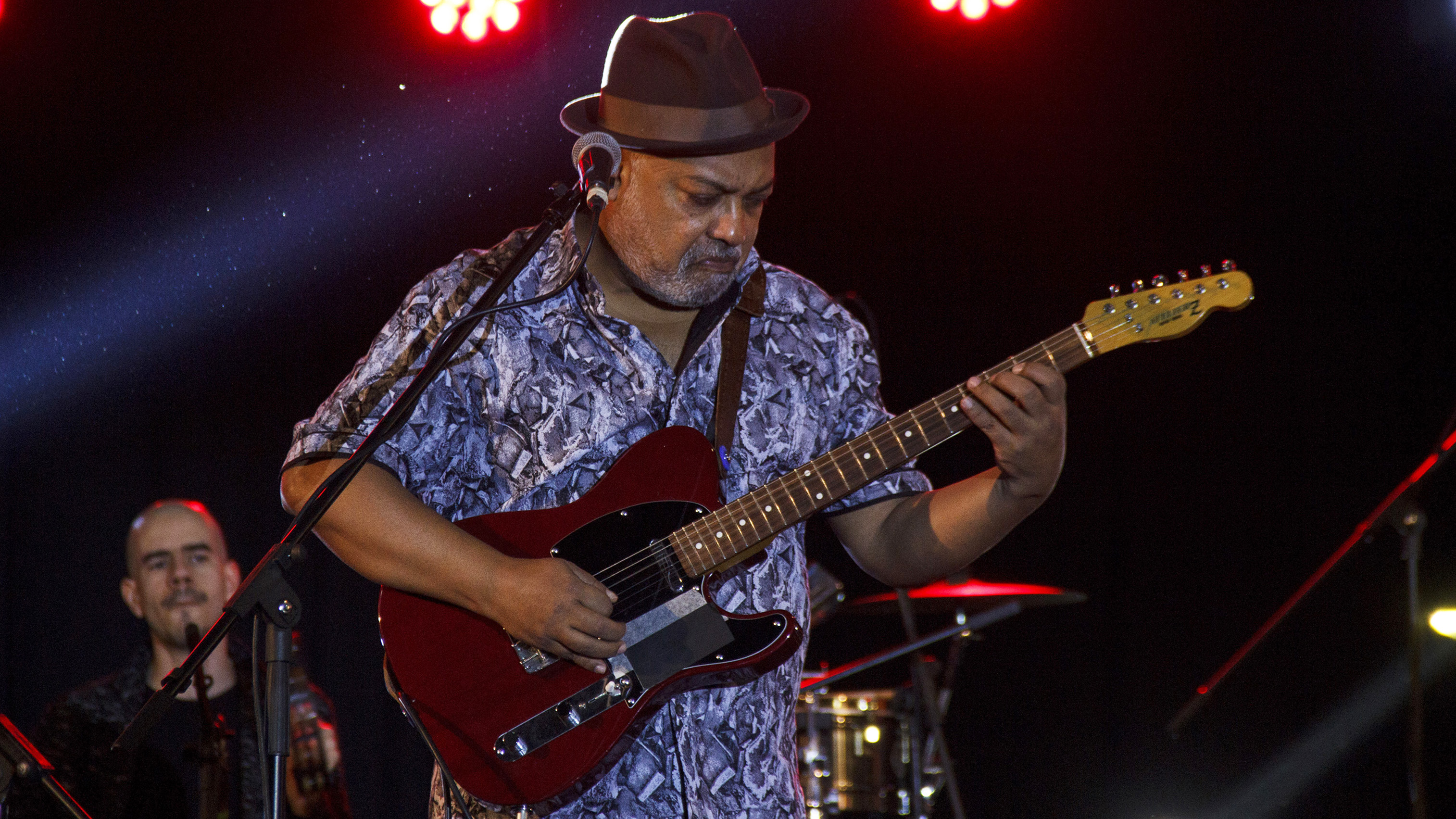
Bluey: “No matter how much you maintain things, equipment does go wrong!
“So if I break a string on the opening of Colibri - an instrumental that begins with my rhythm guitar riff exposed - I make a joke about it and play up to the audience. My take on it is that it’s all part of the show, it’s real life, and if you are relaxed and in the moment you will overcome.”
Guitarist is the longest established UK guitar magazine, offering gear reviews, artist interviews, techniques lessons and loads more, in print, on tablet and on smartphones
Digital: http://bit.ly/GuitaristiOS
If you love guitars, you'll love Guitarist. Find us in print, on Newsstand for iPad, iPhone and other digital readers
